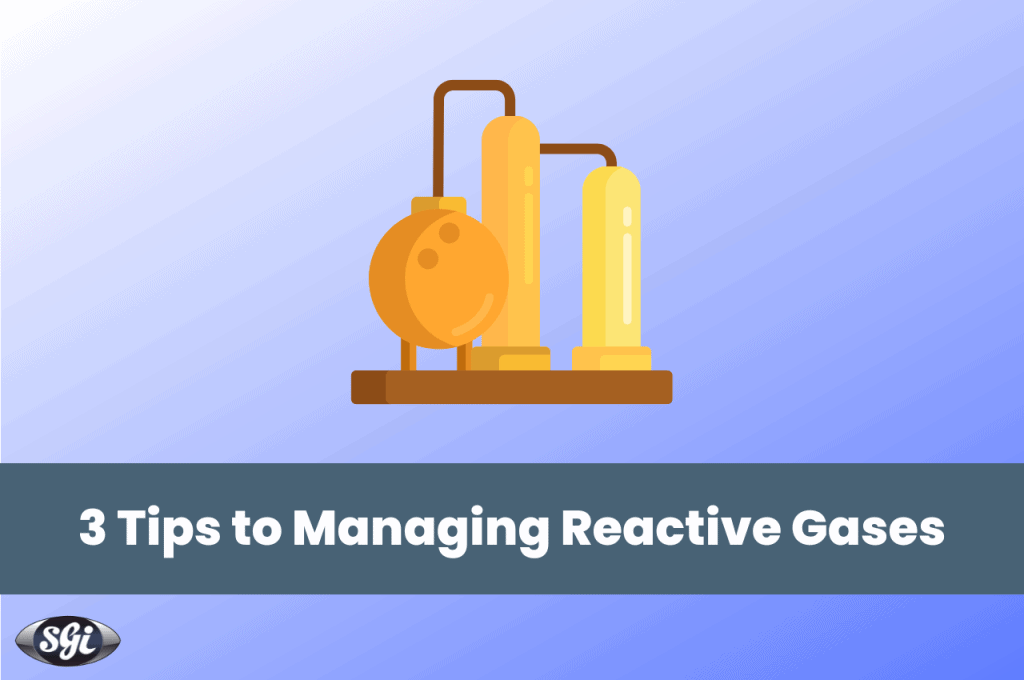
Gas detection systems installed for the safety of workers in an environment potentially exposed to reactive gases hold utmost importance for many industries. Reactive gases are not only important to monitor but also difficult to store, transport, and handle. These gases pose a host of dangers and critical life-threatening risks when working with and hence require special care.
What are reactive gases?
As compared to commonly used gases for industrial purposes, reactive gases are chemically more active. Their properties tend to change with a change in atmosphere and temperature and tend to react when in contact with certain materials. These gases, when used for gas detection and calibration purposes pose multiple risks to the operator handling the gas.
Here are 3 tips to help manage reactive gases safely for gas detection and calibration processes:
SGI's combination regulator, a one-of-a-kind regulator in the specialty gases industry that does not require any external valve fitting when used, also has aluminum parts allowing operators to not only use them for reactive gas based calibrations, but also avoid dangerous cross-contamination that happens during reuse.